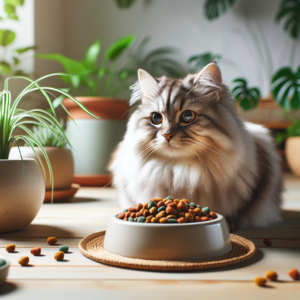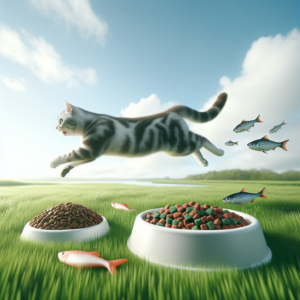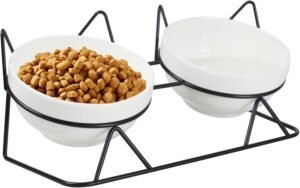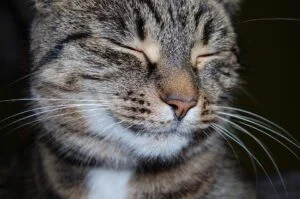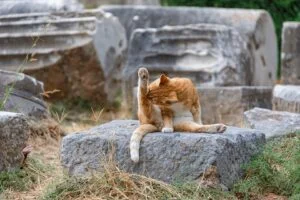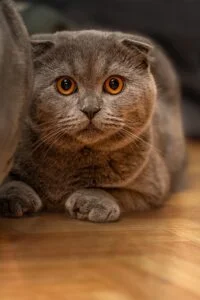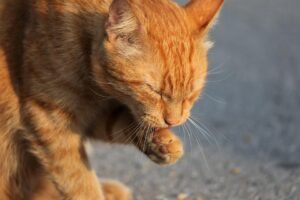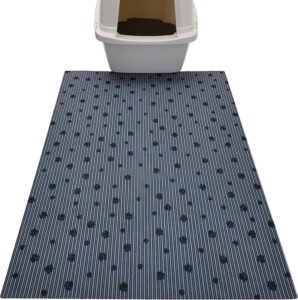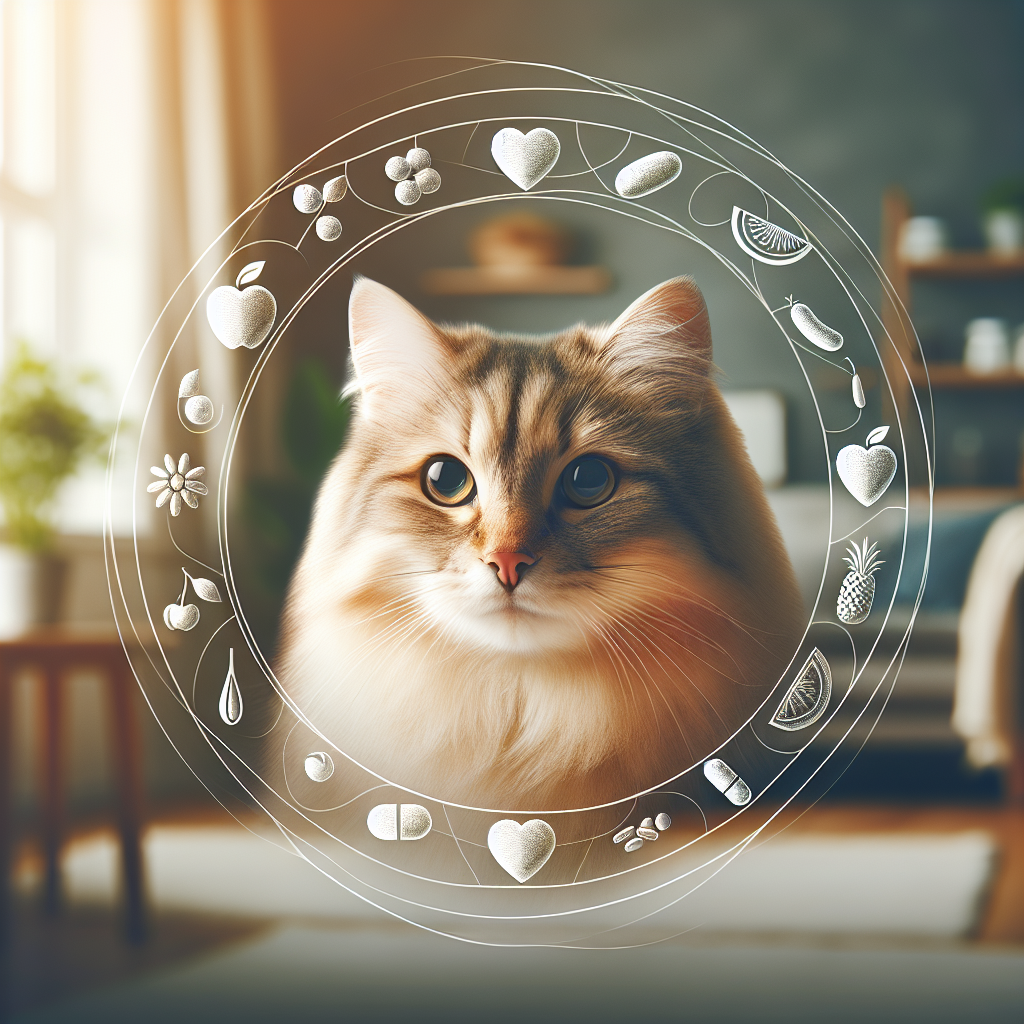
“`html
Introduction to Feline Nutrition
Cats are obligate carnivores, meaning their diet must predominantly consist of meat. Unlike omnivores or herbivores, cats have specific dietary requirements that must be met to ensure their health and well-being. Among the critical components of a cat’s diet are essential vitamins and minerals. These nutrients play vital roles in various bodily functions, from maintaining healthy skin and fur to supporting the immune system and aiding in growth and development.
The Importance of Vitamins and Minerals
Vitamins and minerals are micronutrients that are crucial for cats, albeit required in smaller quantities than macronutrients like proteins and fats. They facilitate a wide range of physiological functions and processes. Deficiencies or imbalances in these can lead to serious health issues, including metabolic disorders, weakened immune response, and poor growth and development.
Essential Vitamins for Cats
Vitamin A
Vitamin A is essential for vision, immune function, and skin health. Cats cannot convert beta-carotene from plant sources into vitamin A, unlike humans. Therefore, they must obtain it from animal sources such as liver or through supplementation in their diet. A deficiency in vitamin A can result in vision problems, skin issues, and a weakened immune system, while an excess can lead to toxicity and health complications.
Vitamin D
Vitamin D plays a crucial role in calcium and phosphorus metabolism, which is vital for maintaining healthy bones and teeth. Unlike humans, cats do not synthesize vitamin D through sunlight exposure, so they must obtain it from their diet. Fish oils and liver are rich sources of vitamin D. Deficiency can lead to bone disorders, while excessive intake can cause toxicity and hypercalcemia.
Vitamin E
This vitamin acts as a powerful antioxidant, protecting cells from oxidative damage. It is essential for maintaining healthy skin and coat and supporting the immune system. Vitamin E is typically found in fats within the diet, and deficiencies can result in muscle degeneration and reproductive issues.
Vitamin K
Vitamin K is critical for blood clotting. Cats usually get enough vitamin K from their diet, but deficiencies can occur due to certain medications or digestive disorders. Insufficient vitamin K can lead to bleeding problems, emphasizing the need for a balanced diet.
B Vitamins (B1, B2, B3, B6, B12)
The B vitamins are involved in energy metabolism, red blood cell production, and nervous system function. They are water-soluble, meaning they need to be consumed daily as they are not stored in the body. Deficiencies in B vitamins can cause a range of issues, from anemia and neurological disorders to skin problems and poor growth.
Essential Minerals for Cats
Calcium and Phosphorus
Calcium and phosphorus are critical for bone health and development. They work together to maintain the structural integrity of bones and teeth. An imbalance can lead to skeletal issues, especially in growing kittens or older cats. These minerals are typically found in meat and bone meal.
Magnesium
Magnesium is involved in numerous bodily functions, including muscle function and energy production. It also plays a role in maintaining a healthy heart rhythm. While essential, excessive magnesium can contribute to urinary tract issues, particularly in male cats.
Potassium
Potassium is vital for nerve function, muscle control, and fluid balance. It is typically abundant in animal tissues. Deficiency can lead to muscle weakness, paralysis, and abnormal heart rhythms.
Sodium and Chloride
These electrolytes are crucial for maintaining fluid balance, nerve function, and muscle contractions. They are usually present in adequate amounts in a balanced diet. However, excessive intake can lead to hypertension and other health issues.
Iron
Iron is essential for oxygen transportation in the blood. It is a crucial component of hemoglobin and myoglobin. Iron deficiency can lead to anemia, characterized by fatigue, weakness, and pale gums.
Zinc
Zinc is important for skin and coat health, immune function, and wound healing. It is found in meat, fish, and eggs. Deficiency can lead to skin lesions, hair loss, and impaired healing.
Balancing the Diet
Providing a balanced diet rich in essential vitamins and minerals is crucial for maintaining a cat’s health. Commercial cat foods are formulated to meet these nutritional requirements, but it’s essential to choose high-quality products that list specific nutrient content. Home-cooked or raw diets require careful planning and supplementation to ensure all dietary needs are met.
Signs of Nutritional Deficiencies
Pet owners should be aware of the signs that may indicate a nutritional deficiency. Symptoms can vary depending on the specific vitamin or mineral lacking. Common signs include:
– Poor coat condition or hair loss
– Lethargy or weakness
– Changes in appetite or weight
– Digestive issues, such as diarrhea or constipation
– Behavioral changes or neurological signs
If any of these symptoms are observed, it’s important to consult a veterinarian to identify and address the underlying nutritional issues.
Conclusion
Understanding the essential vitamins and minerals required for cats is crucial for pet owners who wish to provide the best care for their feline companions. By ensuring a balanced diet, either through high-quality commercial foods or carefully planned home-prepared meals, cats can thrive and maintain optimal health. Regular veterinary check-ups and monitoring for signs of nutritional deficiencies are also vital components of responsible pet ownership, helping to ensure that cats live long, healthy, and happy lives.
“`
